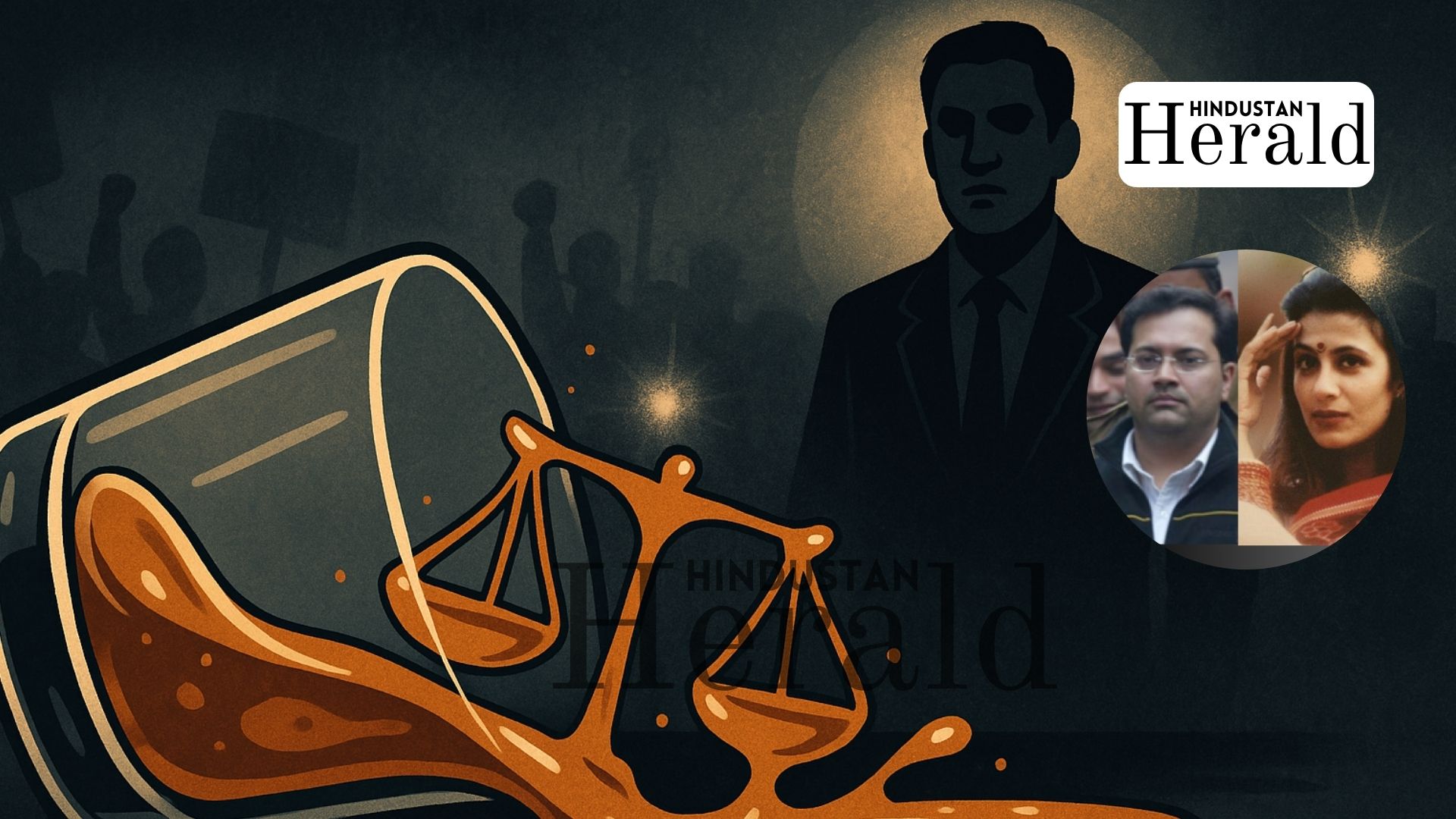New Delhi, October 21: The story of Indri whisky isn’t just about a drink that made it big on the global stage. It’s about memory, morality, and how, in India, some people never really stop being powerful even after a murder conviction.
When the whisky began collecting international awards, few asked who was behind it. It was just another “India Rising” success story, smooth branding, sharp marketing, proud headlines. But recent reports from Splainer and The Sunday Post have pulled back the curtain. They point to Manu Sharma, the man convicted of killing Jessica Lal in 1999, as being tied to the brand through the family-run Piccadilly distillery group.
That revelation has hit like a shot of cold water. Because anyone who remembers that night in Delhi and the long years of public anger that followed knows this isn’t just another business story. It’s a story about how privilege refuses to fade.
A Murder, A Movement, and a Memory
The Jessica Lal case was one of those rare moments when India collectively said enough. In April 1999, at a party in South Delhi, model and bartender Jessica Lal was shot dead after refusing a drink. The man holding the gun was Manu Sharma, son of powerful Haryana politician Venod Sharma.
The case dragged on for years, witnesses turned hostile, and in 2006, a lower court actually acquitted him. The backlash was immediate. TV anchors, newspapers, and ordinary citizens flooded the streets, chanting for justice. That public pressure forced the Delhi High Court to step in and overturn the verdict later that same year. Sharma was sentenced to life in prison.
Fourteen years later, in 2020, he walked free. The Delhi government said he’d shown “good conduct” in jail and had worked with NGOs. Legally, he’d served his time. But for many, it still didn’t sit right.
Because in India, “good behaviour” seems to arrive faster for those who have connections.
From Jail Cell to Whisky Label
What’s sparking fresh outrage now is not the release itself, but what came after.
Sharma, who reportedly now goes by Siddharth Sharma or Siddharth Vashisht, appears to have slipped back into the family business of liquor and sugar under the Piccadilly Agro Industries Ltd banner. The company’s product, Indri, has won rave reviews internationally and was hailed as one of India’s finest single malts.
Until people began connecting the dots.
On social media, users started asking: “Isn’t this the same family?” And then came the boycott calls, the moral outrage, and the reminders of Jessica Lal’s face, a life cut short over a drink.
The irony couldn’t be darker.
Indri’s ads talk about craftsmanship and “the Indian spirit.” Yet behind the carefully curated narrative is a man once convicted of killing a woman who refused him alcohol.
The Power of Privilege and the Art of Reinvention
Here’s the thing: no law stops Manu Sharma from running a business after serving his sentence. Legally, he’s a free man. But morally, India is divided not over forgiveness, but fairness.
Because most ex-convicts can’t even find jobs after prison. They spend years fighting social stigma, struggling to rent a home or earn a living. Sharma, on the other hand, re-emerged into luxury branding, global whisky competitions, and industry acclaim.
That doesn’t happen by accident. It happens because access and affluence smooth out the road. When you come from a family with distilleries, political connections, and decades of business experience, rehabilitation doesn’t look like a struggle. It looks like a rebrand.
And that’s what hits hardest the feeling that power in India doesn’t vanish, it just changes shape.
What the System Lets Slip Through
Governments in Delhi, Haryana, or the national haven’t said a word about the controversy. There’s been no statement from the Ministry of Corporate Affairs, no regulatory scrutiny, no official acknowledgment.
That silence speaks volumes.
India’s remission system, which determines when life convicts can be released early, is notorious for its inconsistencies. It often depends less on reform and more on who writes your recommendation letter. In Sharma’s case, authorities said his NGO work helped other prisoners. It may well be true. But would the same compassion apply to a nameless man from a low-income background?
Legal experts have long argued for transparency and uniformity in remission decisions. Without it, the process will always appear tilted toward those who can afford good lawyers, good press, and good friends in high places.
Society’s Short Attention Span
For all the noise online, India also has a strange habit of moving on quickly. The same society that once protested in Jessica Lal’s name now queues up to celebrate “India’s best whisky.”
That’s not hypocrisy so much as fatigue. Twenty-six years have passed since that night in Delhi. New stories have replaced the old, and younger consumers buying Indri might never have heard of Jessica Lal.
Still, the question remains: how do we decide who deserves redemption?
Forgiveness isn’t the issue. Society should always allow people to rebuild. But what feels unjust here is how easily some rebuild and how invisibly.
As one Delhi sociologist put it, “We’ve turned redemption into a class privilege. It’s no longer about remorse. It’s about resources.”
What This Says About Us
The outrage around Indri whisky is, at its core, about trust in institutions, in fairness, in the idea that justice has the same rules for everyone. It’s about whether time served should automatically erase a past that once shook a nation.
And it’s also about memory. Jessica Lal’s case became a turning point because it showed that the public could make the system listen. But now, with the man convicted of her murder reportedly linked to an award-winning whisky, that victory feels bittersweet.
Maybe this isn’t just Manu Sharma’s story. Maybe it’s India where reputation can be rebuilt faster than justice can heal, and where the powerful are always one headline away from reinvention.
Stay ahead with Hindustan Herald — bringing you trusted news, sharp analysis, and stories that matter across Politics, Business, Technology, Sports, Entertainment, Lifestyle, and more.
Connect with us on Facebook, Instagram, X (Twitter), LinkedIn, YouTube, and join our Telegram community @hindustanherald for real-time updates.
Covers Indian politics, governance, and policy developments with over a decade of experience in political reporting.






